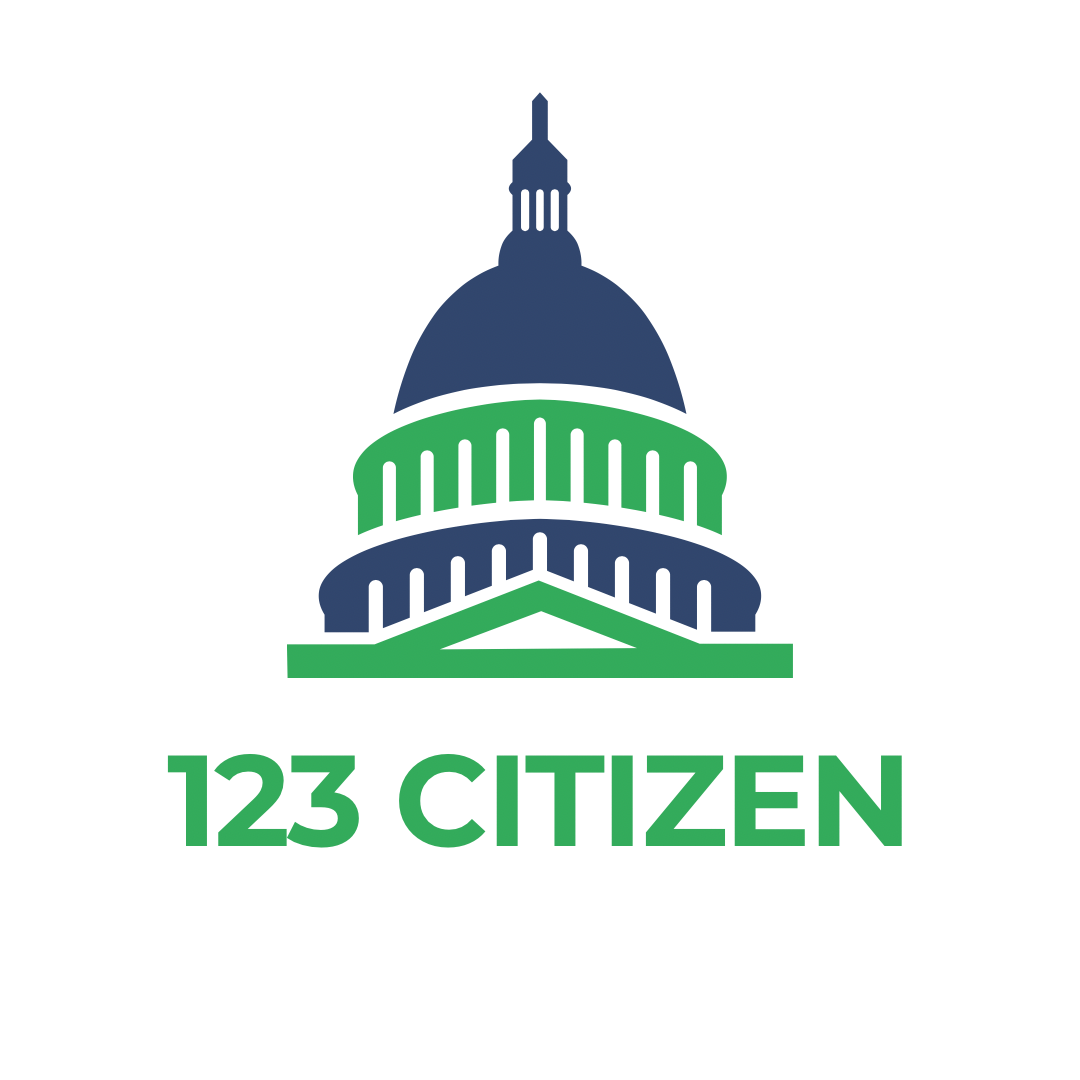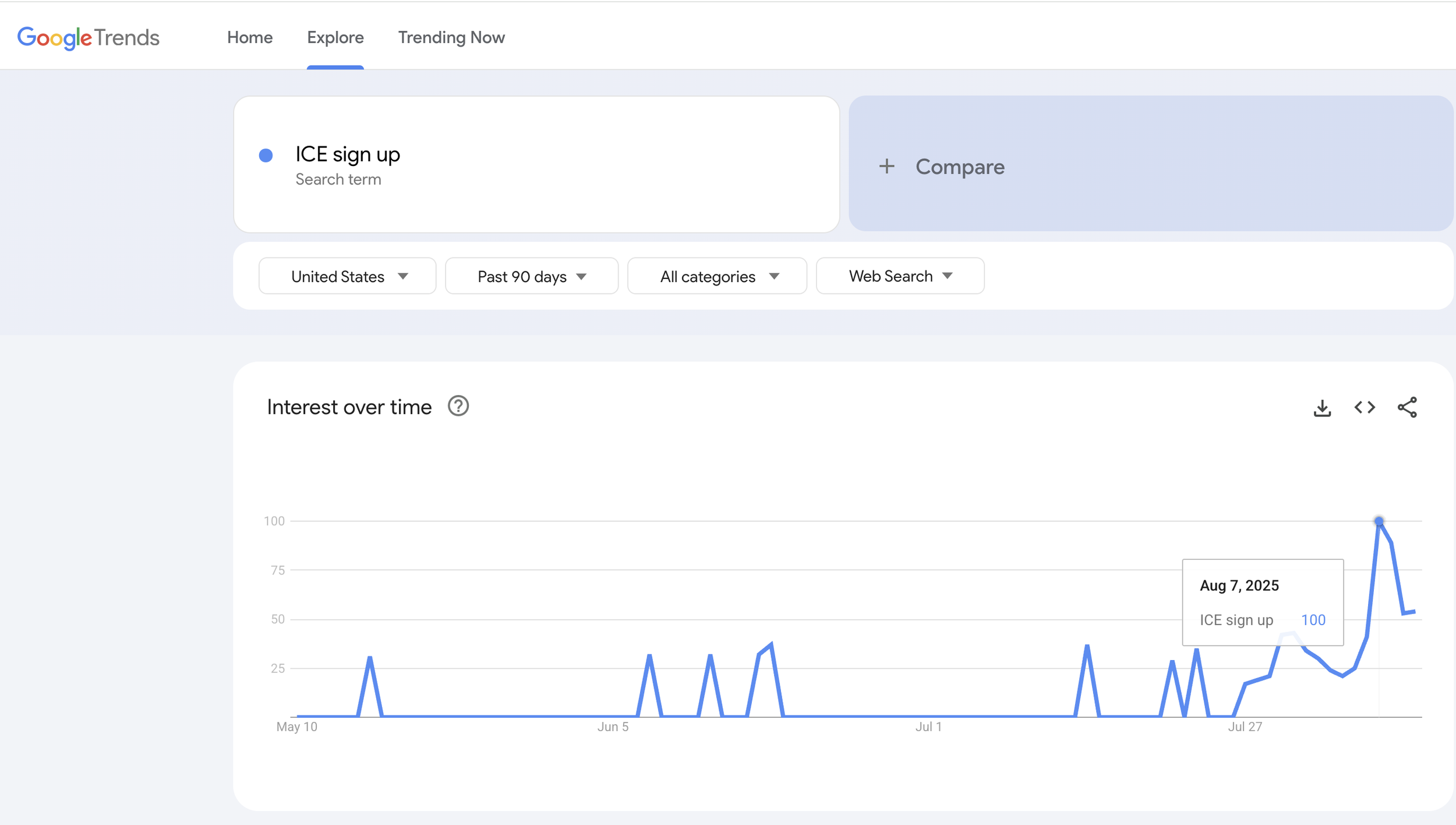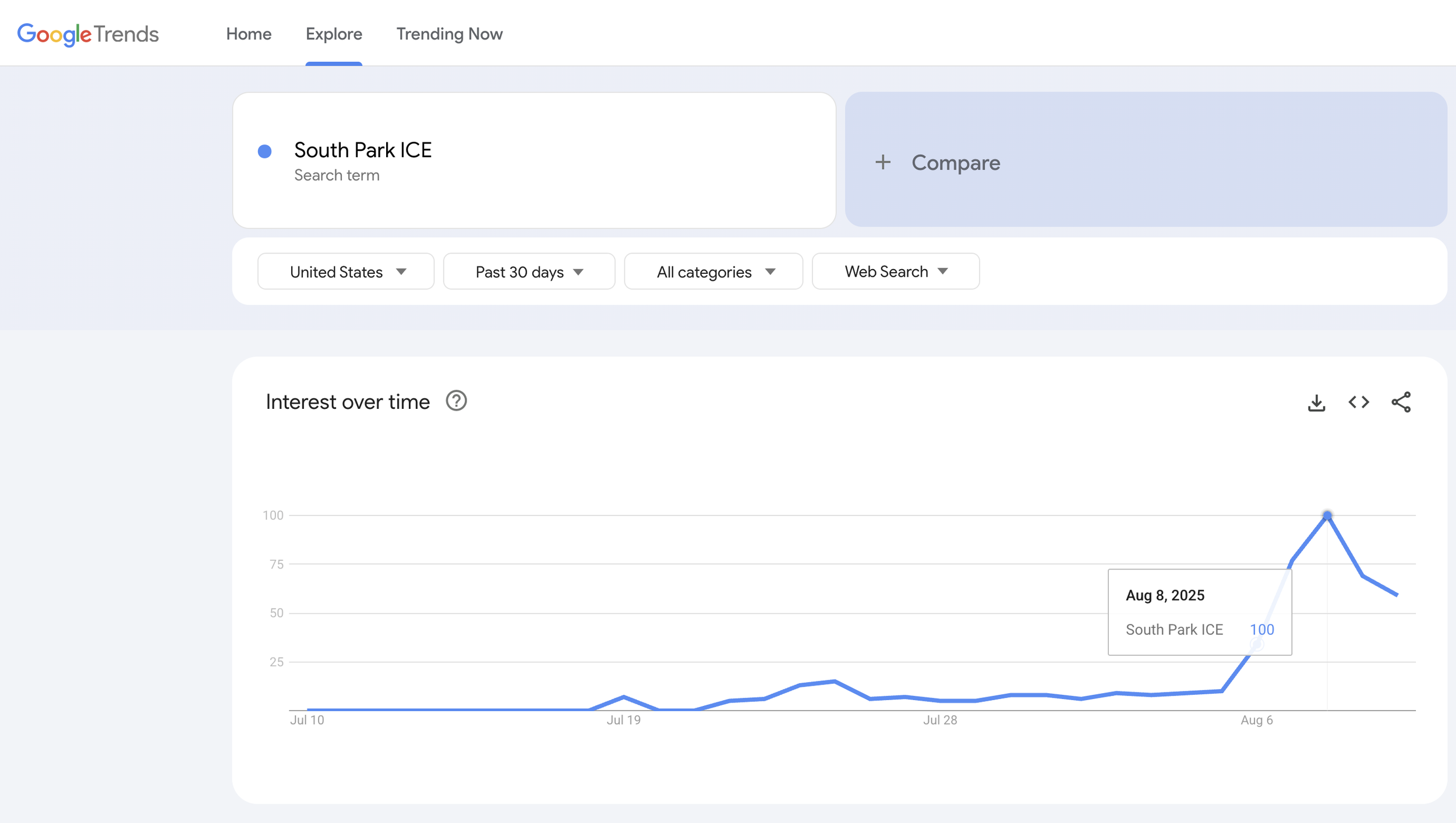Is South Park Quietly Boosting ICE Recruitment?
Google Trends Raise Eyebrows After Recent Episode:
South Park’s recent episode “Got a Nut,” aired on August 6th at 10:00 p.m. Eastern Time (ET). The reaction was pandemonium; from the show’s introduction containing a warning that ‘no one should watch this show’ all the way to its’ dramatic ending where Secretary of Homeland Security, Kristi Noem commits doggie genocide.
It’s no secret or surprise that Immigrations and Customs Enforcement (“ICE”) has floundered on recruitment efforts. Google Trends registered a few small spikes from various media coverage, but the proposition of joining a gestapo-esk organization is a hard sell.
However, it appears that this South Park episode made Google Trends go gangbusters. Data shows massive volume for searches like “ICE SIGN UP” and “ICE SIGNING BONUS.” Leaving many asking: it possible that South Park is actually helping drive ICE recruitment?
The Timeline of Interest
The data, while not definitive proof of any direct link, it is raising questions among media watchers and immigration policy critics: Could the long-running satirical show South Park be unintentionally—or intentionally—boosting interest in ICE?
The chart’s reveal a clear pattern. For months, “ICE SIGN UP” and “ICE SIGNING BONUS” searches hovered near negligible levels. Then, less than 24 hours after the episode aired, interest surged dramatically.
Just Trying to Make His Nut.
In the episode “Got a Nut,” one of the characters, Mr. Mackey, takes a job with ICE to “make his nut” after losing his school counselor job due to government cutbacks. Mr. Mackey, falling on hard times, is then ‘saved’ by a job with ICE, featuring a handsome signing bonus of $50,000.
A fictional storyline, but one that prominently featured a relatable American who was just trying to make his nut. The overlap in timing is hard to ignore.
A Question of Intent
South Park has built its legacy on satirizing institutions, often by exaggerating their presence in absurd or uncomfortable scenarios. In this case, the show’s portrayal of ICE could have been critical in tone—but that doesn’t mean it didn’t inadvertently promote the agency’s visibility and signing bonuses. For some viewers, the storyline might have sparked curiosity about careers at ICE, leading them to search for signing bonuses and application processes.
Critics argue that even satirical or negative portrayals can serve as indirect advertising when they repeatedly spotlight a name or brand—especially when paired with attention-grabbing plot lines. Supporters of the show counter that South Park’s trademark is biting commentary, not recruitment propaganda.
The CBS Trump Settlement
While CBS does not own South Park, the organization is under the purview of Paramount Global, the overarching corporation that owns both CBS and South Park. Many people already forgot, but months ago President Trump won a settlement against CBS that included 50 hours of FREE airtime. Begging the question, can President Trump have real influence over the people of South Park?
The Larger Conversation
Whether or not South Park had any intent to influence public perception of ICE, the search data opens an uncomfortable discussion: In an age where online curiosity is just a few clicks away, satire can have measurable, real-world consequences. Even fictional portrayals can unintentionally boost interest in the very institutions they lampoon.
For now, the question remains unanswered—but the charts don’t lie. Something happened in early August to make thousands of people across the U.S. type “ICE SIGN UP” into their search bars, and the most visible cultural event in that window was a South Park storyline.




